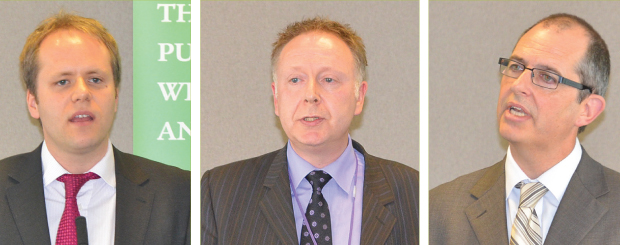Declining Ofsted grades were at the forefront of the ‘FE & Skills Inspections’ Westminster Briefing conference, with recent statistics showing a drop of one or more grades at 65 per cent of colleges since January this year.
Matthew Coffey, the director of development, learning and skills at Ofsted, said the fall in grades is because of a more risk-based approach to selecting colleges for inspection, due to limited resources.
The director strongly emphasised that the downfall is not reflective of “the state of the nation”.
“If we’re targeting our inspectors at those providers that we’ve got the most concern about, we’re going to see a picture like this,” he said.
“But the state of the nation is that around 70 per cent of providers are ‘good’ or ‘outstanding’.”
He added that it is “unfortunate” that this point has been “lost” in the dialogue about grades. “Without the bigger picture [people are seeing] a declining sector. And I really want to reinforce that it’s not the state of the nation you’re seeing at the moment.”
Mr Coffey believes that the landscape will begin to “balance a little”. He said that resources mean Ofsted will do “a little bit less” of the risk based approach and “much more” work looking at providers that ‘require improvement’. He hopes this will mean there will be an “upward trajectory” and a “much more pleasant picture in the shift of the graph”.
All we ask for is fairness, openness and transparency”
The event was chaired by Nick Linford, the managing editor of FE Week. He led audience voting on a number of issues, from the grades slump to success rates. Despite reassurances from Mr Coffey, when asked why they thought there had been a decline in grades 42 per cent of the audience cited ‘Ofsted have moved the benchmarks’ as the reason. (You can find further details about what the audience thought on the graphs to the right.)
The new Common Inspection Framework (CIS) was also discussed by Mr Coffey. Ofsted had said it was due to be published by last Friday, but the director announced that it is now likely to be released this Tuesday. “It’s important it’s published at the same time as the schools framework,” he said.
The framework will give details of three headline grades – outcomes for learners, quality for teaching, learning and assessment, and the effectiveness of leadership and management – which will lead to an overall effectiveness grade.
The ‘satisfactory’ grade will be replaced by ‘requires improvement’. “I accept [that this is] an uncomfortable use of terminology”, Mr Coffey said, “but I think that Sir Michael is very clear that satisfactory just isn’t satisfactory anymore.”
He said that it will be made clear in inspection reports that colleges are on a trajectory and that Ofsted will “invest in coming back even sooner so that [they] can celebrate that [colleges have] become good”.
The importance of self-assessment reports (SAR) were highlighted by the director, who said they are partly needed to assess risk, which can not only be determined using data. He explained that they “help to mitigate the story that might be invisible on raw date”. The director also asserted the significance of inspection nominees, which have an “even more important role” to play with the introduction of two day notice inspections.
During the conference Mr Coffey made it clear to the audience that Ofsted has a complaints process and that people “must complain” if they think there is a problem with how their inspection was handled.
Tim Eyton-Jones, the principal of John Ruskin College, said that it took “confidence” to have this robust conversation, particularly when newly appointed to a role. Mr Coffey agreed, stating that the confidence of newly appointed principals and senior leadership teams is “a really important issue”.
Nick Linford, managing editor of FE Week, Matthew Coffey, national director at Ofsted, Tim Eyton-Jones, principal of John Ruskin College
Mr Jones also said that he has “serious concerns” with the current inspection framework and is “yet to be convinced” that these worries will be addressed in the new framework.
The principal, who has been working in the sector for 25 years, was particularly critical of the disparity he sees in how Ofsted treat different education providers.
He spoke about how John Ruskin College was once given ‘good’ in a number of areas by Ofsted, but was awarded an overall ‘satisfactory’ grade, because there was only evidence of improvement in the last year. Later on he saw that an academy had been awarded ‘outstanding’ when it had been open less than a year.
“All we ask for is fairness, openness and transparency,” Mr Eyton-Jones said. “We can’t have an inspectorate regime where it’s one rule for one sector and one rule for another.Let’s be honest, the external environment that we’re operating in at the moment is incredible complex, it’s incredibly competitive and there’s every indication that it’s going to get harder in the future.
“That’s not an excuse, but it’s got to be acknowledged.”
The principal added: “If we’re going to take a risk based approach to inspection, let’s have a true clear set of criteria, so that we as a sector know if we’re dipping down… because if we all know, then we might be able to change our approach.”
Click here to download our detailed round up of the delegate voting participation


Your thoughts